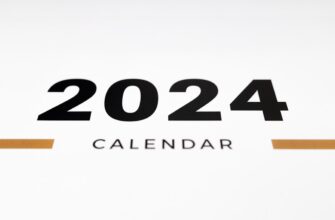- Understanding Staking Rewards Taxation in Canada
- How the CRA Taxes Staking Rewards
- Step-by-Step Reporting Process
- Deductible Expenses for Stakers
- Business vs. Personal Staking Taxation
- Essential Record-Keeping Practices
- Consequences of Non-Compliance
- Frequently Asked Questions
- 1. Are unstaked rewards taxable?
- 2. How do I value rewards in CAD?
- 3. Can I claim losses if crypto value drops after staking?
- 4. Do I pay tax on staking rewards if I live outside Canada?
- 5. How does staking in pooled services affect taxes?
- 6. Are airdrops following staking events taxable?
- Staying Compliant with CRA Regulations
Understanding Staking Rewards Taxation in Canada
As cryptocurrency staking gains popularity among Canadian investors, understanding the tax implications becomes crucial. The Canada Revenue Agency (CRA) treats staking rewards as taxable income, requiring accurate reporting to avoid penalties. This guide breaks down everything you need to know about paying taxes on staking rewards in Canada, helping you stay compliant while maximizing your crypto investments.
How the CRA Taxes Staking Rewards
Unlike some jurisdictions, Canada clearly classifies staking rewards as ordinary income rather than capital gains. This distinction is critical because:
- Rewards are taxed at your marginal income tax rate (up to 53% depending on province)
- Taxation occurs when rewards are received, not when sold
- The value is based on CAD equivalent at time of receipt
- Both proof-of-stake (PoS) and delegated staking fall under this treatment
Step-by-Step Reporting Process
Properly reporting staking rewards involves these key steps:
- Track every reward: Record date, amount, and CAD value at receipt
- Calculate total income: Sum all rewards received during tax year
- Report on Line 13000: File under “Other Income” on your T1 return
- Maintain documentation: Keep exchange records and wallet statements
- Convert values accurately: Use Bank of Canada exchange rates or credible crypto data sources
Deductible Expenses for Stakers
You may offset tax liability through eligible expenses including:
- Transaction fees for staking operations
- Hardware costs (deducted via capital cost allowance)
- Proportion of electricity/internet if staking from home
- Exchange withdrawal fees
- Professional tax preparation fees
Note: Deductions require proof of direct relationship to staking activities. Personal expenses don’t qualify.
Business vs. Personal Staking Taxation
The CRA distinguishes between occasional stakers and business operators:
- Personal Staking: Treated as property income with limited deductions
- Business Staking: Applies if staking is frequent/commercial. Allows full expense deductions but subjects profits to CPP contributions
Factors determining business status include frequency, organization level, and profit motivation. When in doubt, consult a crypto-savvy accountant.
Essential Record-Keeping Practices
Maintain these records for 6 years after filing:
- Date and time of each reward receipt
- Exact cryptocurrency amount received
- CAD fair market value at receipt time
- Wallet addresses and transaction IDs
- Receipts for claimed expenses
- Exchange rate sources used
Consider using crypto tax software like Koinly or CoinTracker for automated tracking.
Consequences of Non-Compliance
Failing to report staking rewards may result in:
- Penalties of 5-10% of unpaid tax plus daily interest
- Gross negligence penalties up to 50% of owed tax
- CRA audits of previous tax years
- Potential criminal charges in severe cases
The CRA actively tracks crypto transactions through crypto asset questionnaires and data-sharing agreements with exchanges.
Frequently Asked Questions
1. Are unstaked rewards taxable?
Yes. Taxation triggers upon receipt, regardless of whether rewards remain staked or are moved to your wallet.
2. How do I value rewards in CAD?
Use the fair market value at the exact time of receipt. Refer to Bank of Canada daily rates or credible crypto pricing sources.
3. Can I claim losses if crypto value drops after staking?
Only when you dispose of the asset. The capital loss can offset capital gains but not staking income.
4. Do I pay tax on staking rewards if I live outside Canada?
Canadian residents pay tax on worldwide income. Non-residents are taxed only on Canadian-source income.
5. How does staking in pooled services affect taxes?
Tax treatment remains identical. You’re responsible for reporting rewards proportional to your contribution.
6. Are airdrops following staking events taxable?
Yes, airdrops are generally treated as ordinary income at fair market value when received.
Staying Compliant with CRA Regulations
Properly reporting staking rewards in Canada requires diligence but prevents costly penalties. Document every transaction, convert values accurately, and consider professional advice for complex situations. As crypto taxation evolves, staying informed ensures you maximize returns while meeting all obligations to the CRA.








